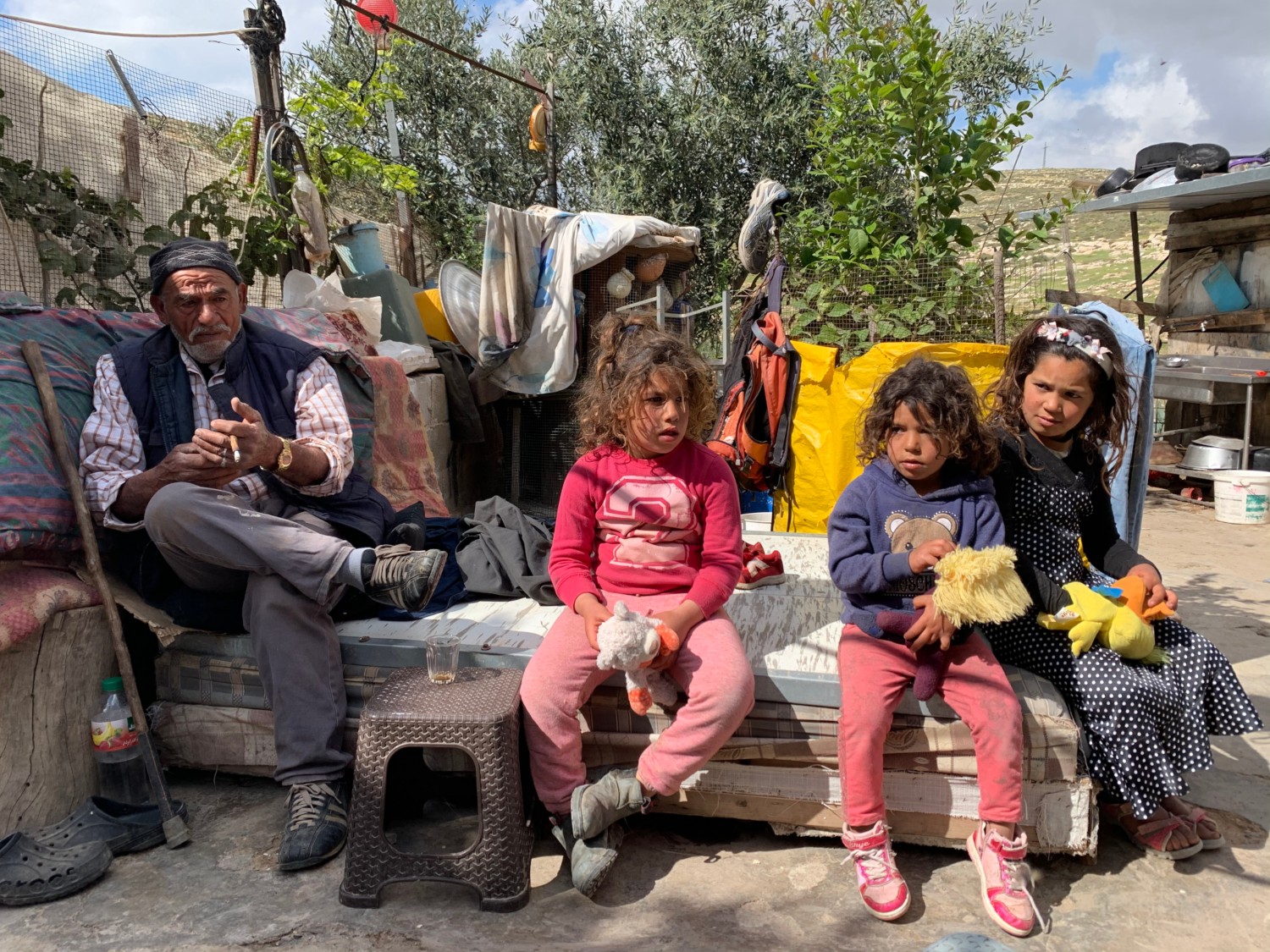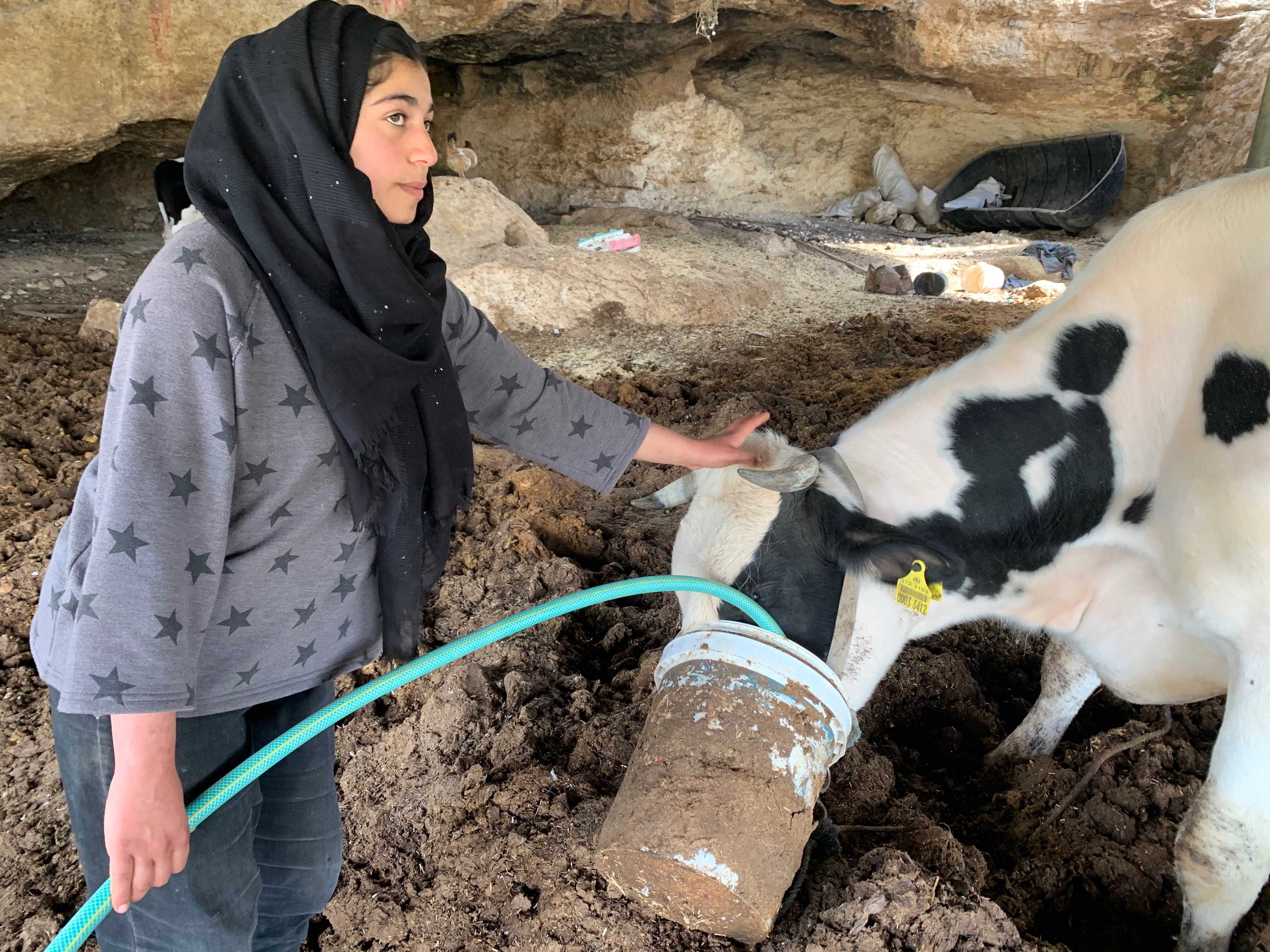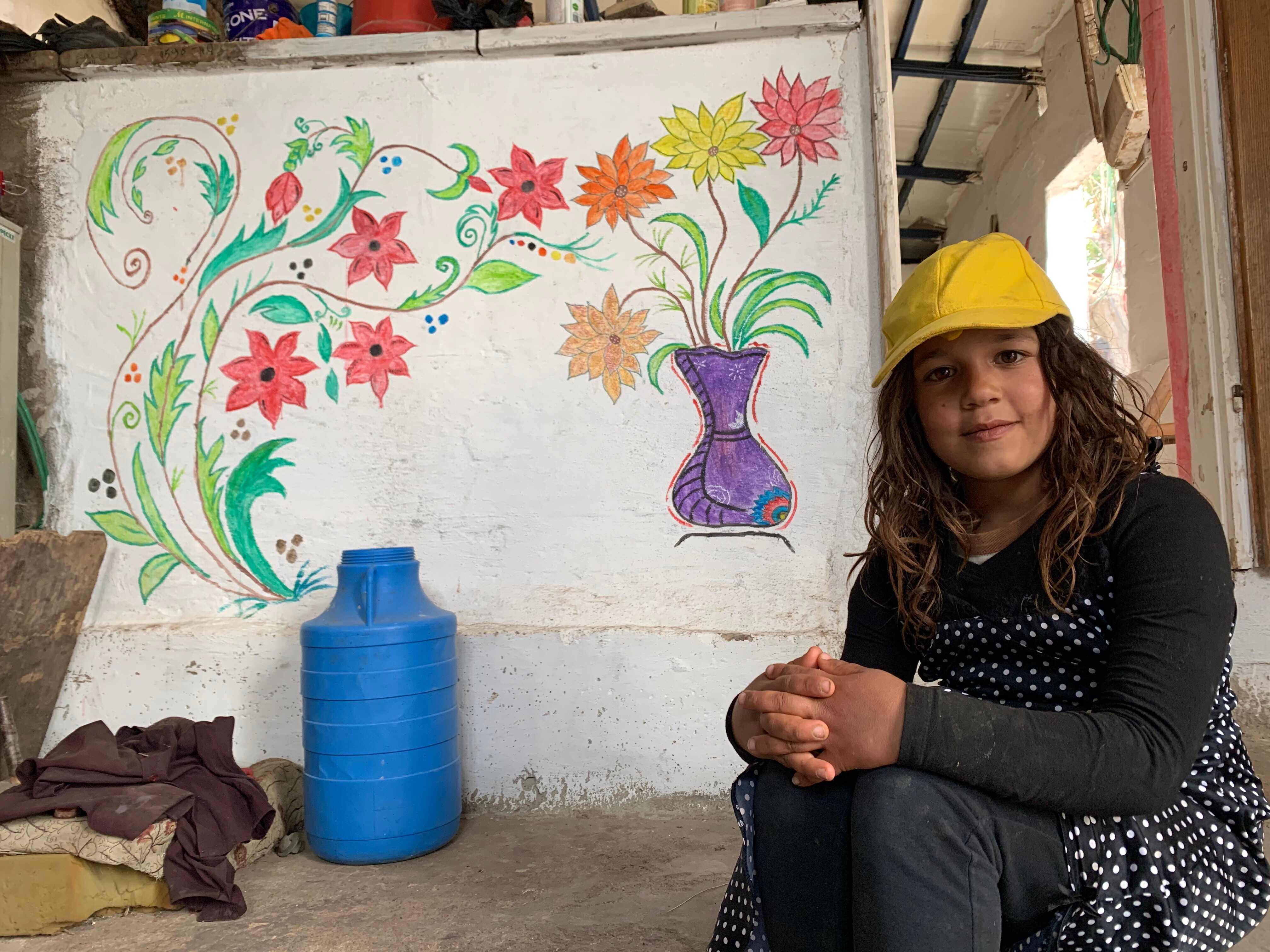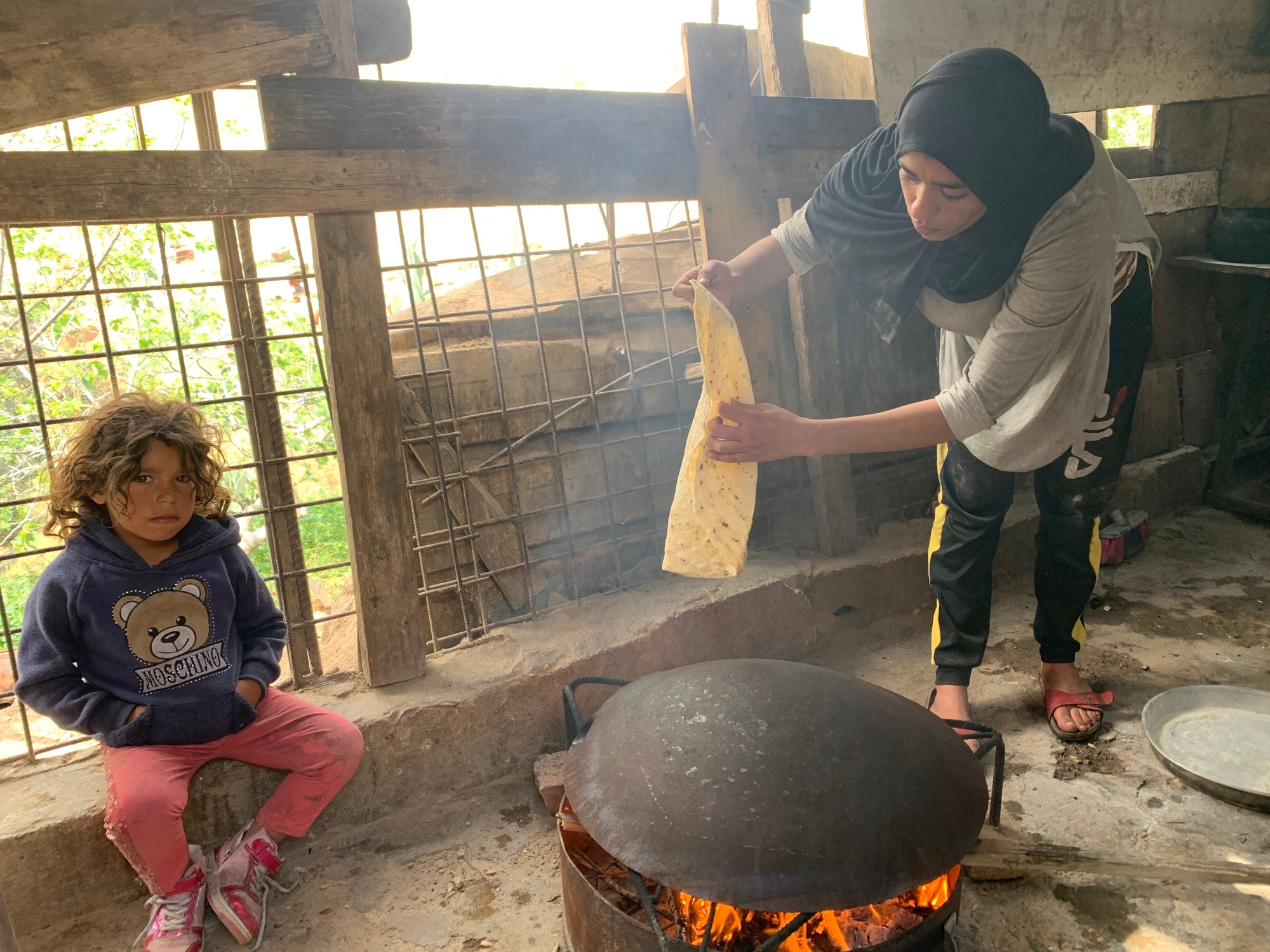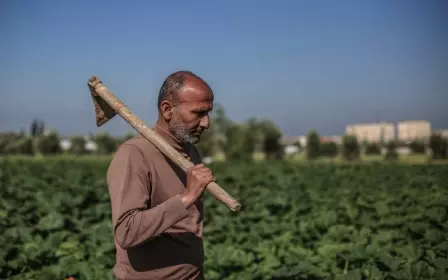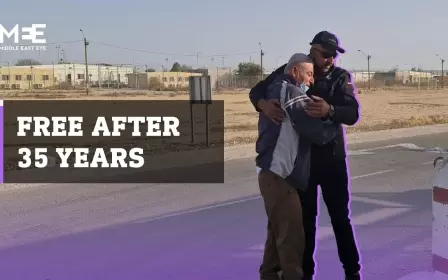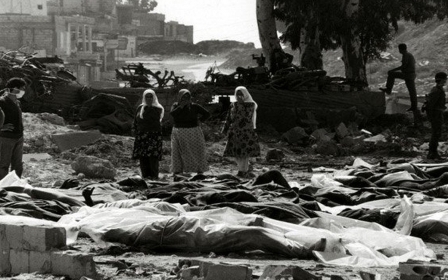Palestinian sisters face challenges of daily life in West Bank village under threat
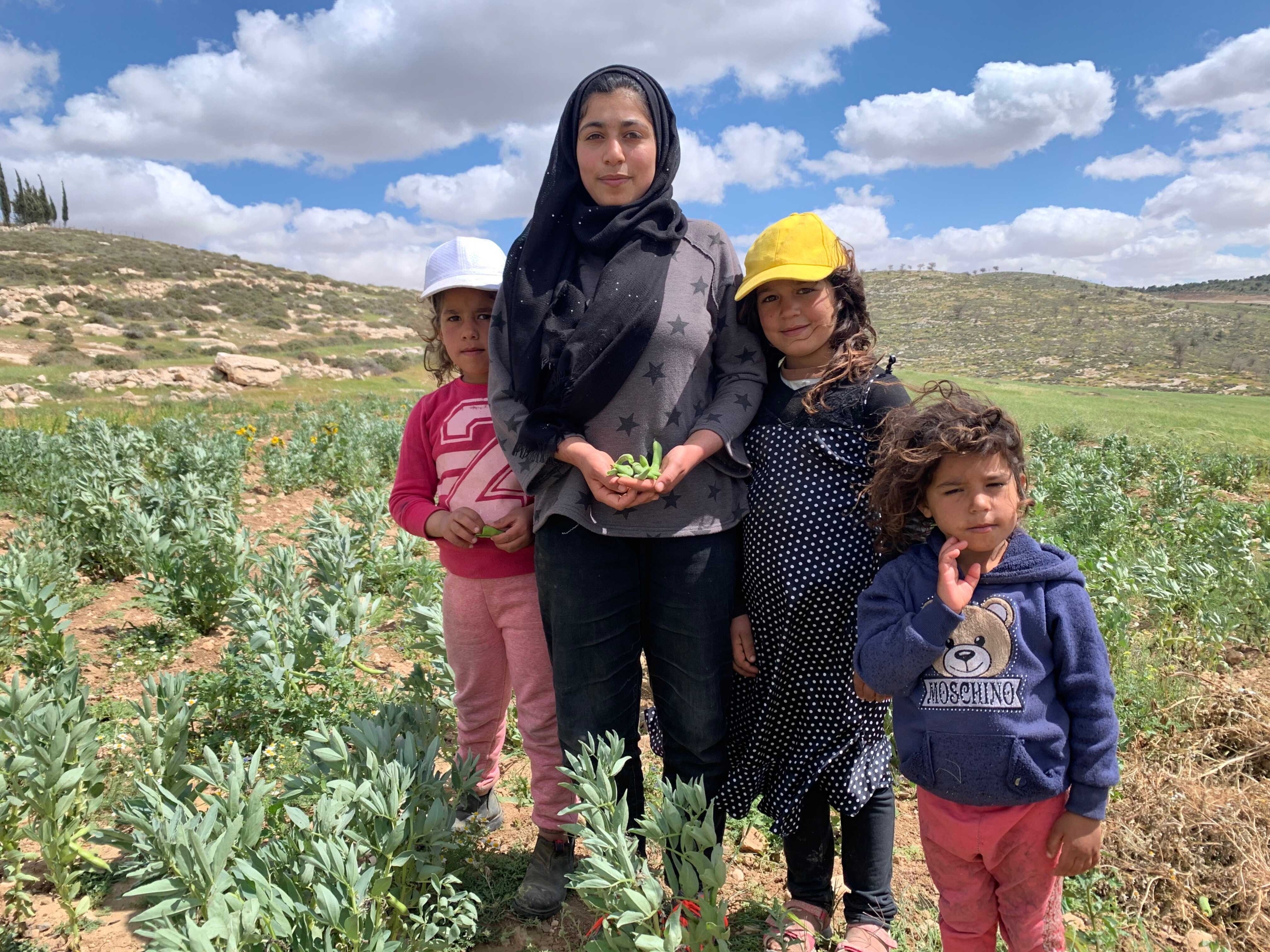
On a sunny spring morning in the occupied West Bank village of Khirbet al-Radhim, Zeina Abu Kabbash goes about her day, looking after crops and feeding the cows on her family's land.
'Life here is very hard, very different from that of my friends who enjoy a comfortable and luxurious existence'
- Zeina Abu Kabbash, 15
The 15-year-old should be attending online lessons, as are her schoolmates. But since her village in the southern governorate of Hebron has no electricity or internet, she has been missing classes ever since her school moved to virtual lessons following the outbreak of the Covid-19 pandemic.
Zeina has been warned by her teacher that, if she continues to miss online classes, she will have to repeat the grade next year.
"Life here is very hard, very different from that of my friends who enjoy a comfortable and luxurious existence," she tells Middle East Eye while picking beans in the field. "I miss school very much. I need it... But what should I do? I only have a humble, broken mobile phone."
The Abu Kabbashes are one of seven families still living in Khirbet al-Radhim, the last Palestinian village in the far south of the occupied West Bank. They have no access to electricity, water or internet, and the call connection services remain poor.
Despite the lack of modern necessities, the village's residents refuse to leave their homes and ancestral lands, which have been surrounded by illegal Israeli settlements since the 1980s and face the constant threat of demolition.
Last village standing
The Abu Kabbash family lives in a cave and has an additional room constructed with zinc sheets on their 150-dunam (15-hectare) plot of land. The family of 11 depends on its crops, beekeeping and honey production for a living.
The head of the household is 74-year-old Issa Safi Abu Kabbash. He says that although his land is large, he can barely make ends meet for his wife, eight daughters and one son.
"Our land is not fertile. If the soil is fertile one year, it won't be in the following five years," he says, adding that this was due to a lack of water in the area.
Water shortages have been exacerbated by the fact that the Israeli Civil Administration, the military body that rules over the 60 percent of the West Bank known as Area C, has refused to give him a permit to dig a well. There hasn't been much help or compensation coming from the Palestinian Authority either, he adds.
Issa inherited his land from his father and grandparents, and possesses property ownership documents dating back to the Ottoman era. But Israeli authorities do not recognise his ownership papers, and have issued demolition orders on his home.
"With this military force that besieges and haunts us every day, we have no choice but to sacrifice our comfort and dreams to stay here, to continue cultivating our land and live in it," he says.
Issa adds that Israeli authorities have already destroyed four metal structures that his family had used to raise sheep for three decades.
However, the threat of demolition hasn't stopped him from continuing to plough the land every morning to prepare it for his wife and eight daughters to plant the seeds.
Pointing at the peak of a mountain near his field, he says: "This one settler moved there two years ago. Since then, he has constantly released his animals onto our lands. So far [his animals have] destroyed around 20 dunams of our crops."
Dangerous neighbours
Since the 1980s, Israeli settlements, which violate international law, have expanded across the West Bank, notably in the southern Hebron governorate, where dozens have sprouted on hilltops and mountains, and lands confiscated from Palestinians living in the area.
Three settlements - Asael, Shama and Otniel - surround Khirbet al-Radhim, as well as the outpost whose animals have destroyed the Abu Kabbashes' crops. While outposts are also deemed illegal under Israeli law, in effect they are tolerated by Israeli authorities, and many are legalised retroactively.
"Since 1984, Israel has used the military force to impose settlements. It destroyed us, confiscated our lands, and besieged what had remained," Issa explains as he rolls a cigarette. "Nowadays, Israel does not only target our homes. It targets us [the residents], because it considers us an obstacle to its settlement expansion. It does not want us here."
'I continue to dream of dogs chasing me. I wake up terrified'
- Eight-year-old Maram
The settlers have not treated the villagers kindly, according to the Abu Kabbash sisters.
Before the pandemic, Zeina and her eight-year-old sister Maram used to walk one kilometre every morning to catch the bus to school in the village of Khirbet al-Shweika.
"The journey [to school] is hard, and we are always worried and afraid of shepherd settlers. They would block our path, scare and threaten us, and even set their dogs on us," Zeina recalls.
Maram was once attacked by settlers dogs and still has nightmares about the incident.
"I continue to dream of dogs chasing me. I wake up terrified," she tells MEE.
Zeina just wants the settlers to "get out" of the area so villagers can feel "safe and never fear displacement at any moment".
"This is my land that the [Israeli] settlers covet and wish to take," the teenager says, vowing never to leave her village in order to protect her family's claim to the land.
‘Painting our destiny’
Zeina's older sister, Rania, is responsible for preparing lunch for the family while others work in the field. An aspiring illustrator, the 20-year-old has stayed at home after graduating from high school because a university education is out of her reach.
"I wish to continue my studies and learn more about art, but all the universities are very far from our home, and my family wouldn't be able to afford my university expenses," she says.
She wakes up early each morning to feed the sheep and cultivate the land. Whenever she finds spare time, she uses it to practise her self-taught anime drawing techniques.
"I need to improve my skills and acquire new ones. Although I spend a lot of time on housework and helping my family in the field, I always find some time to train myself on drawing," she says.
Rania has turned the walls of her family's humble home into works of art, with colourful murals inspired by her thoughts and emotions, including one depicting birds flying out of cages.
"I think of our destiny all the time. What would happen to us if they demolished our home or evicted us from our land?" she asks. "This fear never leaves my mind."
Faced with obstacles outside their control, the Abu Kabbash sisters nonetheless never stop harbouring dreams of their own.
Zeina wants to become the first nurse in Khirbet al-Radhim, in order to provide healthcare for its 70 residents. Currently, villagers need to travel 45 minutes by car to seek medical care in the closest village, Samu, or more than an hour to the nearest hospital.
As for Maram, who often speaks with a shy, closed-lipped smile, her aspiration is to become a dentist so she can treat children in her village with poor teeth, just like herself.
Middle East Eye propose une couverture et une analyse indépendantes et incomparables du Moyen-Orient, de l’Afrique du Nord et d’autres régions du monde. Pour en savoir plus sur la reprise de ce contenu et les frais qui s’appliquent, veuillez remplir ce formulaire [en anglais]. Pour en savoir plus sur MEE, cliquez ici [en anglais].


